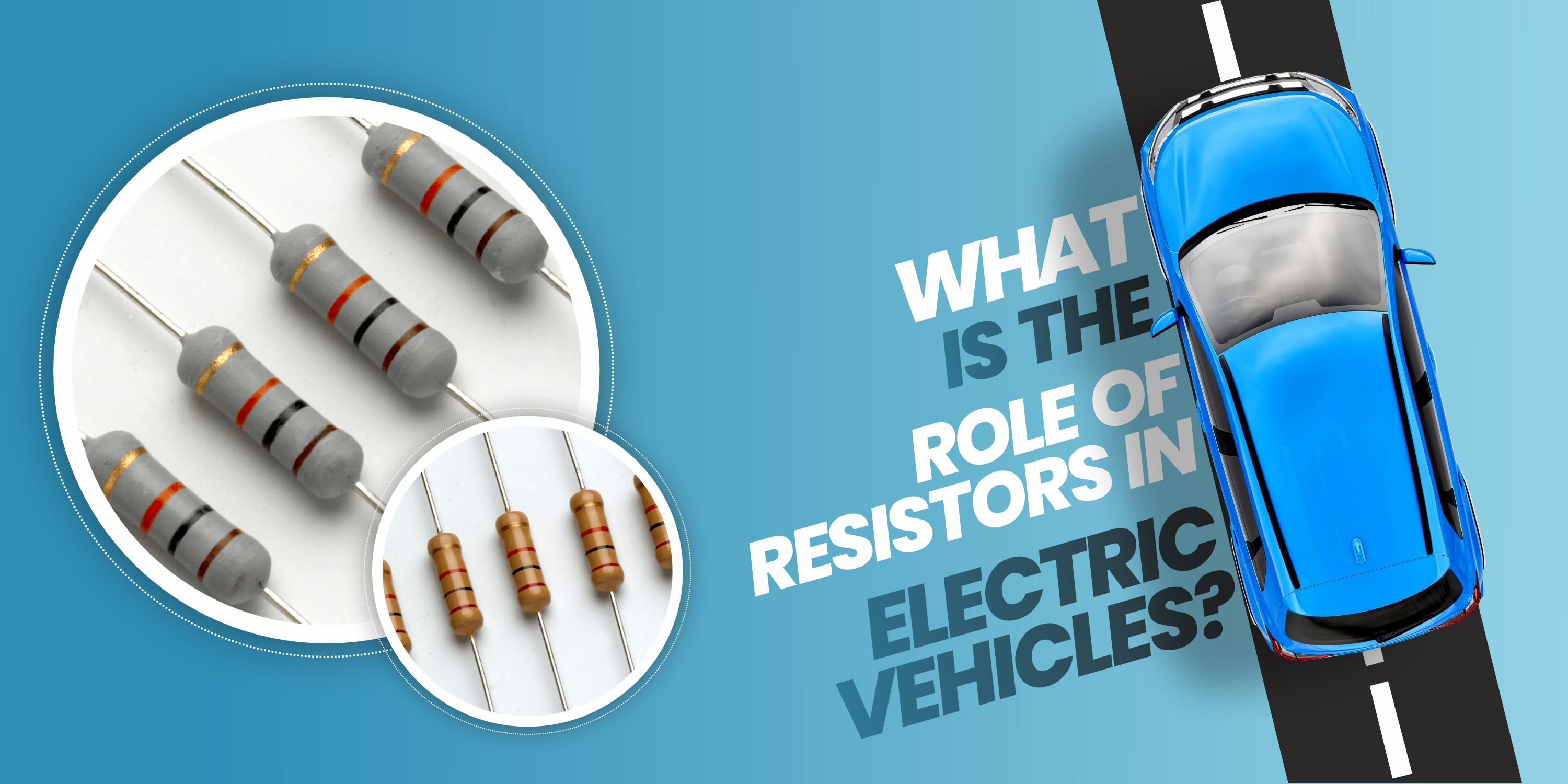
What is the Role of Resistors in Electric Vehicles?
As electric vehicles (EVs) continue to dominate the transportation landscape of the future, it’s becoming increasingly important to understand what makes them tick. Resistors are key players in many aspects of making EVs run better, though they rarely get much attention. Let’s explore the role of resistors in electric vehicles, with a particular look at the braking resistors produced by Cermet Resistronics, a trusted name in this field.
So, What Do Resistors Actually Do In EVs?
Simply put, resistors control the flow of electricity in a circuit. By doing so, they help prevent excess material and dissipate excess heat energy. While this may sound simple, resistors in an electric vehicle have several important functions that make them essential to the vehicle’s safety, performance and overall performance
Pre-charge resistors are used in EVs to safely charge the high-voltage capacitors or bus bars in the electrical system before the main power circuit is engaged. This helps prevent sudden high-current surges that could damage components or pose safety risks
Resistors And Braking System: A Perfect Pairing
One of the main roles that resistors play in an EV is in the braking system. In a conventional vehicle, most of the energy generated during braking is lost as heat. However, electric vehicles can recapture some of this energy through a process called regenerative braking. Here’s how it works: When you hit the brakes, the electric motor reverses, slowing the car, and converts some energy back into electricity, which is then stored in the battery
But what happens when your battery runs out, or you have to brake faster than the regenerative braking allows? This is where brake resistors like those made by Cermet Resistronics come into the picture. These resistors absorb excess energy that the battery can’t handle, and convert it into heat. This ensures that your EV can brake properly and safely without putting undue stress on the battery.
Keeping You Safe On The Road
Safety is paramount in car manufacturing, and electric cars are no exception. Brake resistors play a big part in this, especially when you need to decelerate quickly. During emergency stops, the brake resistor ensures that your EV slows down quickly without damaging the battery or other electrical components.
Additionally, when driving downhill for extended periods of time—where regenerative braking may not be sufficient brake resistors help keep the brake system from overheating This means your brakes will always work and won’t fail when you need them most and you have avoided accidents It’s important.
Protecting Critical Parts Of Your EV
In electric vehicles, in addition to brakes, resistors help protect the electrical components of the vehicle. The electrical currents in the various systems in an EV battery management system, power electrodes, motor controllers, etc. need to be handled with great care Resistors help control these currents, preventing excessive voltage or current from penetrating any object, which can cause serious damage.
For example, if you accelerate or decelerate suddenly, large electric currents can flow through the EV’s wheelbase. Resistors help deal with these spikes, keeping sensitive parts safe and ensuring your car runs smoothly, no matter how you drive.
Increased Safety and Productivity
While safety and security are important, resistors also play a role in how well and efficiently your EV runs. By controlling the flow of electricity and controlling overvoltage, resistors make your car system more efficient. Not only does this help your car run more efficiently, but it also extends the life of critical components, saving you money on maintenance and replacement costs.
Cermet Resistronics’ braking resistors, in particular, are designed with efficiency in mind. These resistors can handle high power loads while minimising energy loss, ensuring that your EV uses its energy as efficiently as possible.
Conclusion
Resistors may be small, but their role in electric vehicles is anything but minor. From making sure your car brakes safely to protecting delicate electrical parts and improving overall efficiency, resistors are vital to the smooth operation of modern EVs. Companies like Cermet Resistronics are at the forefront of this technology, providing high-quality brake resistors that help make electric vehicles safer, more efficient and more reliable
As electric vehicles become increasingly popular, it’s important to understand how each one, including resistors, works. Thanks to high-quality parts from manufacturers like Cermet Resistronics, we can look forward to a future where electric vehicles are not only sustainable but also a smart option for drivers everywhere as well.

